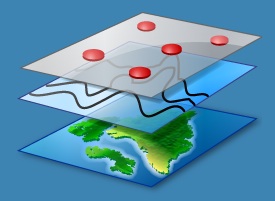
Have you ever tried to check into a place on Foursquare or some other geo service only to find that there are 10 names for the same location? For instance, Foursquare has tons of different “places” that are all inside Grand Central Terminal in New York City. There is Grand Central Terminal itself, but there is also Track 32, 34, 108, and so on. You can also check into the Blimpies or Hudson News inside the terminal, or the “5:22 Express To Grand Central Terminal” which is not a single place so much as it is a moving train (literally). While there are times you want to have the granularity of being able to say, “I am in front of the central ticket booth with the clock,” nine times out of ten simply checking into Grand Central Terminal is sufficient for most people.
The Grand Central problem is replicated across many popular places in Foursquare and other places databases. According to mobile marketing startup Placecast, location datasets show similar mismatches up to 40 percent of the time. Placecast launched a MatchAPI two months ago for geo developers which helps resolve place duplication in their location database. Since then, 200 location services have signed up to tap into the free API, pushing 20 million locations through the API, of which 1.5 million were incorrect or duplicative. The mismatch rate ranges from 8 percent to 40 percent. Services which rely on their users to upload and identify places not surprisingly have the higher fault rate.
Normalizing everything down to a single place per location isn’t necessarily the answer. Sometimes I want to tell my friends that I am on Track 32 in Grand Central Terminal, but most of the time I travel alone and simply want to check into Grand Central, the place. The overarching location should be the default, and it should be the same matches across different geo services. As I’ve argued in the past, ultimately an open database of places is going to be needed so that we can all collectively map the world once and various geo services can then tap into that universal places database and spend their efforts building their services on top of it.